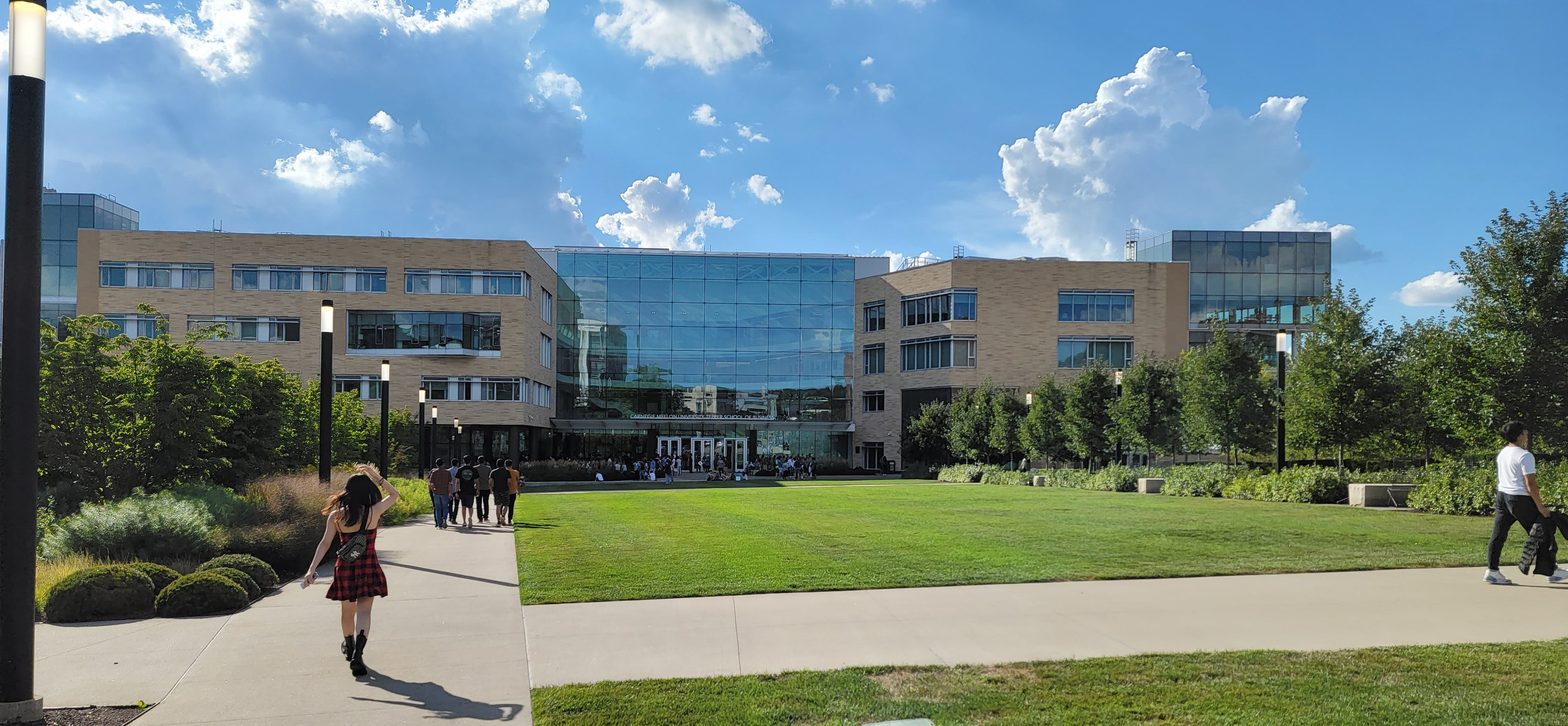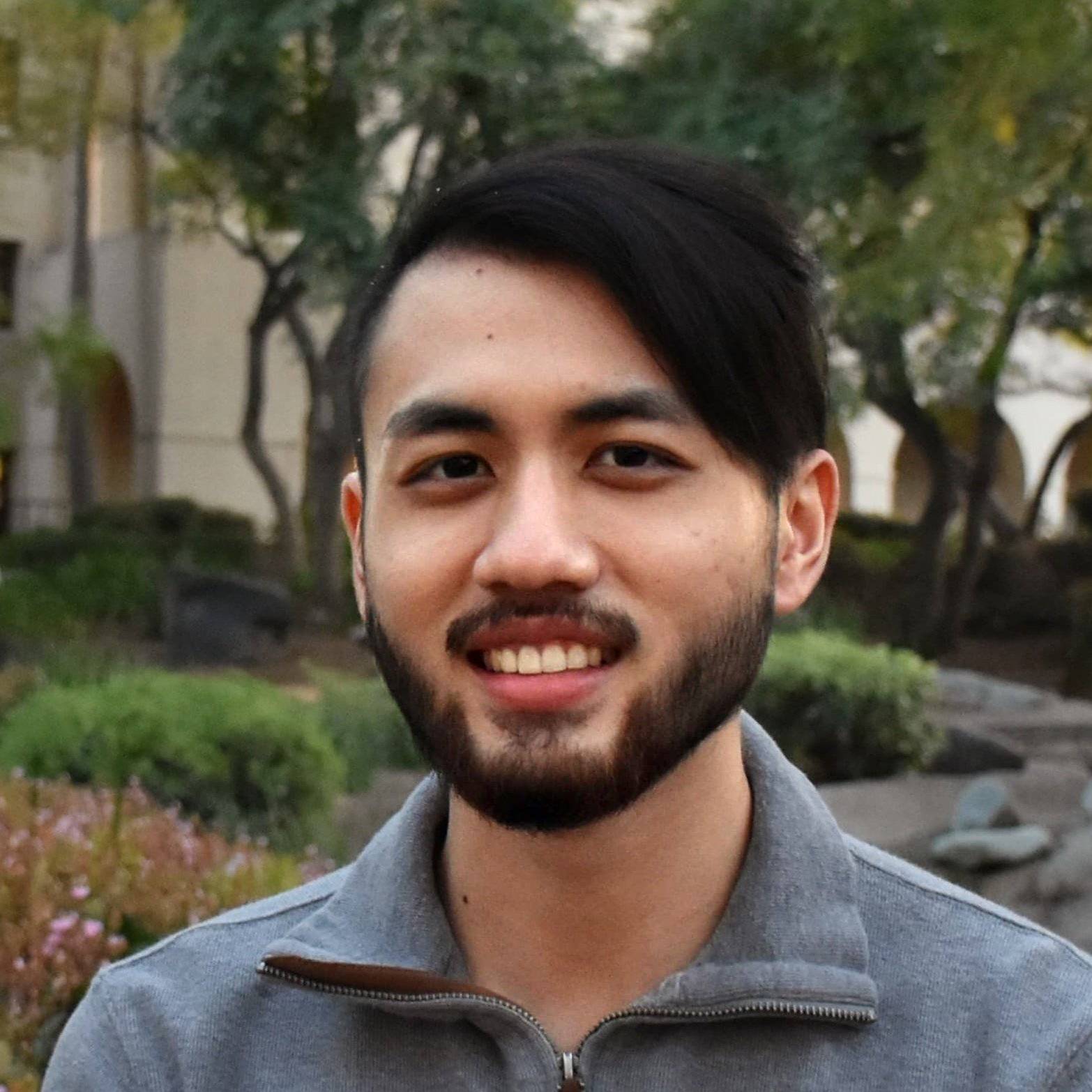First Things To Do As A PhD Student


23 Oct 2022

I recently moved from Pasadena in California to Pittsburgh in Pennsylvania. As you can imagine, it was a big move! 🚙 I drove across several thousand miles of deserts and forests to arrive in the old, mid-sized city surrounded by mountains and rivers–the renowned city of steel on the east coast.
As I settled in to my move, I realized there were a number of things that I could do to start again more strongly as a student. After all, everyone starts as a new kind of student over and over again, so everyone gets some practice. But as a PhD student who recently started as an MS student, I had a good idea of what I could do better starting as a graduate student again. And as any good student should do, I decided to take notes of those things I thought most important. It’s not every year you can start as a PhD student starting in these challenging, post-global-pandemic times. Maybe it’s a history worth recording?
In no particular order, here are my list of a couple great things to do a couple weeks after you arrive in your new city and new lab as a PhD student:
Meet your labmates
Throughout your PhD, your labmates are some of the people you will interact with the most. It’s important to build those connections early on so they know who you are, and you know who they are. Lab mates are valuable to know since they are subject matter experts in very related fields, and they are super accessible to you. You can see them in the lab or office space and pick their minds to get a good idea of some issues and solutions you’ll be facing very soon in research and in courses.
Labmates are also connections who you’ll know professionally for a long time even after graduation as they all go their separate paths as researchers, policymakers, managers, etc. It’s a great idea to build a strong connection to them as you’ll have a relationship that is valuable for many years to come.
The golden time to meet them is the first couple weeks, or ideally even a couple weeks before school since the stress of classes won’t be bothering anyone at this point when you grab lunch or get a tour of the lab with your experienced colleagues.
Meet other people in your program
Similar to the above section, people in your program are subject matter experts in very related subfields. Although they won’t be as accessible as your own labmates, they are usually more than happy to help you out with a couple of days notice. Again, these connections will be very valuable to you for many years to come. It’s also nice to have a bigger group of people since you’ll know a more diverse group of people. For many people, having a diverse group of people you can potentially connect to can also be very benefical socially, as you’ll be more likely to find people that you have more in common with.
Again, you should try to meet other people within the first couple of weeks. It is not the worst if you don’t however, as there will potentially be more times in the future to meet the plenty of people in your program or even department (if you want to expand your scope).
Allocate extra time for trainings, literature review, initial meetings, etc.
Note that when you first start graduate school, you’ll be doing some things that take some extra time. At the same time, classes will usually be a bit easier at the beginning. Use this time to knock out your trainings (safety, diversity, research ethics, etc.) and to do plenty of literature review. One thing I learned as a PhD student is that any good PhD student knows the literature in their field very well, so they can propose new ideas that can potentially be published, and discuss new ideas with other students or faculty.
My professor said recently:
the first couple of weeks are for you to read 100 papers
which scared me at first. However, reading papers doesn’t necessarily mean reading every word. Oftentimes, by reading the abstract, the pictures, and the conclusion, you can get a ton of applicable information out of the paper. Reading the introduction can help you find other papers or understand the state of the field at the time of the paper, and reading parts of the methods can get you an idea of what similar techniques can be used for you–but it’s definitely optional and a case-by-case basis when you need to read those.
Find or make a study group
For any tough class, it’s a great idea to form a study group. Two life hacks for getting good grades in classes is 1) to work together and check your work with other students, and 2) ask your TAs questions during office hours and check your answers. All of these are constrained by what is allowed in the collaboration policy of course, but there is a reason those rules exist—it can sometimes be too easy to pull answers from some of your study friends, which often means you don’t learn as much. But they do constrain some of the most efficient ways to study and get good grades in your classes. Of course, you should try to get some work done yourself, however, when you get stuck, it is often a great idea to reach out for help so you don’t get trapped in an unnecessary time sink where you are throwing ideas at a brick wall, when you might have just missed one negative sign or just don’t know of a well-known method that some other people have found somewhere.
Study groups are also great ways to build rapport with people in your program as you will be struggling through problem sets together for many hours. It also makes for a good excuse to socialize a bit, especially when you have fellow PhD students who are hard at work for many hours of the day.
Get your things
Two great ways to get things as a poor PhD student is 1) to use Buy Nothing groups, which as of 2022, are popular local Facebook groups that have many locals giving away things that they may not need anymore and 2) buy a 3D printer to print odds and ends in case you need them. Buy Nothing groups are super useful, and I think the only reason they aren’t used more is because they are not well known and it sounds too good to be true. I have received plenty of great furniture on Buy Nothing for free within a 0.5 mile radius, and it is often from other students who are moving out, or families who live nearby giving away their extra goods. As a PhD student, your stipend won’t be very high. Therefore, saving hundreds of dollars on furniture will be very useful for you to be able to buy some extra niceties for yourself when you can.
A 3D printer is also a nice way to save some money, or at least potentially be environmentally friendly. Functional 3D prints are able to get you what you need pretty quickly. For example, I have printed out command hooks, coasters, hair catchers, and soap holders—all in nice designs that I can customize. I would recommend if you have some CAD knowledge to buy a 3D printer, although it will take some setup and trial and error to get a good workflow.
Set up a nice office space
One thing a lot of people learned from COVID is that setting up a good workspace for yourself can mean the difference between being efficient and comfortable, or being inefficient and miserable when working. It’s a good idea to treat yourself to some productivity goods when you can, such as a big desk, a nice keyboard and mouse, as many monitors as you can, a fast computer, etc. Although I’m not the best at this, it’s also a great idea to decorate your space. Make it a nice space with some succulents, posters, and sticky notes so that your space is personal and makes you happy to go and get started working.
Find a good advisor
If you haven’t found your advisor yet, it’s critical that you find a good one for yourself. Your advisor determines when you graduate, how often you need to publish, and oftentimes how many hours you’ll be working. They also determine the types of projects you’ll be working on. Make the time to find your best advisor fit by talking to plenty of other graduate students on the style of the advisor, doing your research on the field of research the advisor studies (maybe their research is more suited to industry, or maybe to academia), and talking to a variety of advisors themselves.
Because your advisor is such an important aspect to figure out as a PhD student, it’s really ideal to figure out your advisor before school starts, or at least have a shortlist in mind. In my opinion, rotation programs are not the best, especially when you are already coming in with an MS. Use your connections with other students to figure out how the advisor is, and whether there are any red flags you can deal with before you make the fateful decision of matching with your new long-term boss. As intense of a relationship as a PhD advisor is, it can also be a great celebration of who you are as a researcher since you’ll be starting anew with research, new labmates, and a new relationship to research.
Find a sport (healthy body, healthy mind)
It’s a great idea to find a sport you like. For graduate students, going to the gym is a good idea for training your strength through weight training or your cardio through machines. There will also be group classes, such as yoga or kickboxing for you to learn some skills to help improve your flexibility and your explosiveness.
To connect with other graduate students, joining a sport club is a great idea. Some clubs that make it easy to meet new people are volleyball, tennis, soccer, basketball, or even rugby. CMU happens to have a great number of martial arts clubs, like MMA, grappling, karate, and others. There is also a good number of dance teams, which is usually a great social experience.
Get to know your city
Many people I talk to outside of Pittsburgh don’t know Pittsburgh very well, but it’s a great city to be a student. It is very walkable, dense enough to be bikeable, and has good public transport. There are also a good number of great nearby restaurants and bars.
The city you live in will be a very important part of your life, so make sure you know it well so you know where to relax, where to propose socials, and what you can do when you’re not just doing research!
